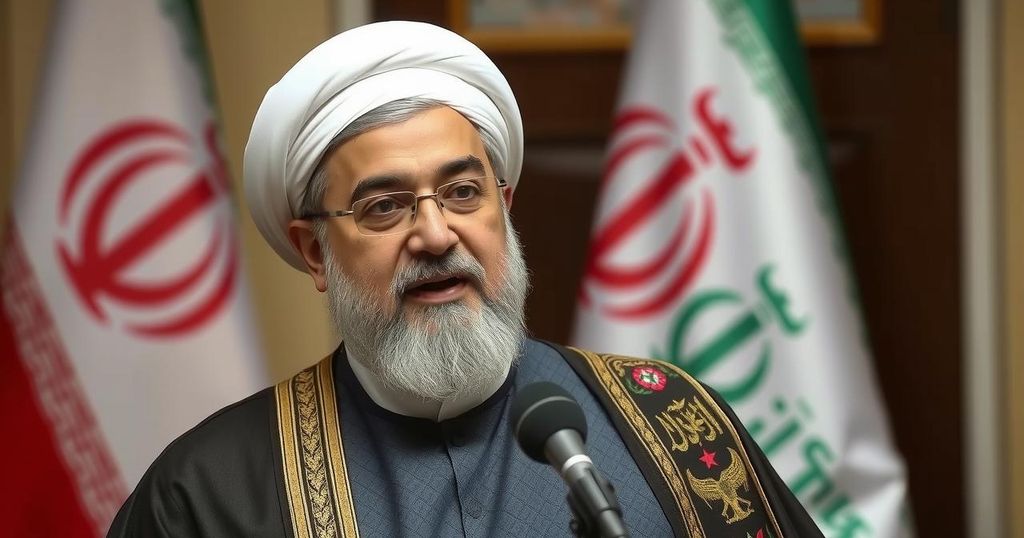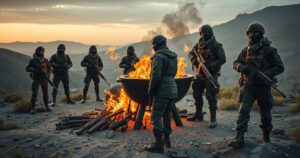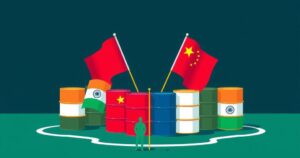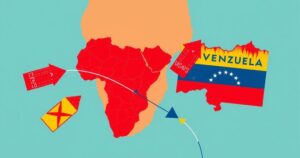Ahmed Al-Shara Critiques Iranian Interference Amid Syrian Leadership Transition

Ahmed Al-Shara, Syria’s de facto leader, criticizes Iranian interference, asserting that the Syrian people liberated their country and calling for independence from foreign meddling. During an Al-Arabiya interview, he emphasized strained ties with Iran and announced plans to integrate Kurdish forces. The withdrawal of Iranian-backed militias further signifies Tehran’s declining influence in Syria.
Ahmed Al-Shara, the de facto leader of Syria following the decline of Bashar al-Assad, has publicly condemned the Iranian regime’s pervasive interference in Syrian affairs while advocating for a reassessment of its approach. In a recent interview with Al-Arabiya, Al-Shara expressed that the Syrian populace liberated their homeland and expressed intentions to cultivate positive relationships with regional and international powers, excluding Tehran should its meddling persist.
Previously allied with Hayat Tahrir al-Sham under the name Abu Mohammad al-Julani, Al-Shara firmly insisted on Syria’s sovereignty from external influences. He stated, “We did not enter Tehran or southern Lebanon; we entered our own cities and villages,” firmly rejecting Iran’s control and acknowledging that Syrian authorities have taken measures to dismantle Iranian-supported bases and facilities, indicating fulfillment of their responsibilities.
In addressing remarks made by Iran’s Supreme Leader, Ali Khamenei, which sought to minimize Iranian proxy involvement in Syria, Al-Shara characterized such statements as efforts to disrupt and destabilize the new Syrian government. During the interview, he articulated the tense dynamics between Syria and Iran due to the latter’s actions throughout the thirteen-year conflict. Al-Shara remarked, “Iran’s actions amount to historical vengeance,” stating that this behavior is no longer acceptable to the Syrian populace.
The transitional government in Syria faces daunting tasks, including the stabilization of the nation and navigating relations with Kurdish factions. Al-Shara disclosed intentions to incorporate Kurdish forces into Syria’s defense mechanisms, emphasizing the government’s commitment to security and development. Amid these transformations, numerous Iranian-backed militias, encompassing Hezbollah and the Fatemiyoun and Zainabiyoun groups, have reportedly withdrawn from Syria, indicating Tehran’s diminishing influence and its struggles to sustain Assad’s regime.
Al-Shara characterized the policies employed by the Iranian regime as severely detrimental, emphasizing the Syrian people’s aspiration for a peaceful and self-governing future. With the current government prioritizing the reconstruction of Syria and enhancing regional alliances, the interventionist strategies of the Iranian regime are increasingly facing rejection on both domestic and international fronts.
The ongoing conflict in Syria, which has persisted for over a decade, has seen significant involvement from external powers, particularly Iran. As the Syrian civil war drew on, Iran positioned itself as a critical player, supporting the Assad regime through military and financial means. However, with the potential shift in Syrian leadership dynamics post-Assad, voices such as Ahmed Al-Shara’s have emerged, calling for independence from foreign interference and emphasizing national sovereignty. This context underpins Al-Shara’s opposition to Iranian policies, asserting the need for a redefined relationship based on mutual respect and non-interference.
In summary, Ahmed Al-Shara’s critiques underscore a shift in Syrian sentiments towards Iranian involvement. By asserting the necessity for Syria’s independence, Al-Shara indicates a broader desire among the Syrian populace for a government free from foreign interference. As Iranian-backed forces withdraw and the transitional government initiates plans for stabilizing the country, the Iranian regime’s influence appears to be waning, creating a pivotal moment in Syrian politics.
Original Source: www.ncr-iran.org






